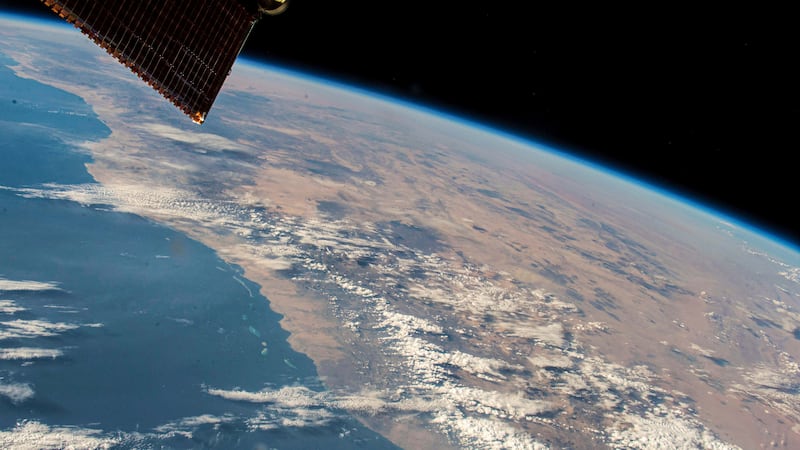Saudi Arabia will partner with the World Economic Forum for the creation of an entity called the Centre of Space Futures, which will be hosted by the Saudi Space Agency.
The centre will be a part of WEF’s Centre for the Fourth Industrial Revolution network (C4IR), a future-oriented platform for dialogue and co-operation that seeks to make the most of technology to transform economies and societies among various countries and regions.
It is the first C4IR segment to focus solely on space exploration and research.
“Today is a remarkable day for us at the Saudi Space Agency,” said Mohammed Al Tamimi, chief executive of the Saudi Space Agency.
“This will help to establish a global platform to engage both private and public sector in space discussions,” he told a news conference on the second day of the World Economic Forum’s special meeting in Riyadh.
“We’re going to make sure we come together to make sure we engage in the space economy.”
While rising geopolitical tensions took centre stage at the WEF special meetings, themes of global collaboration, growth and energy were also in the discussion mix, along with space travel and digital health care.
Mr Al Tamimi spoke about the need for collaboration, particularly between the private and public sector in the space sector.
“We strongly believe in Saudi Arabia in the commitment that the space economy is the collaborative economy, and we have to make sure that it flourishes … we need well-crafted policies, when you go to the private sector they want their voice to be heard to adopt new technology through balanced regulation to access the space industry,” he said.
Jeremy Jurgens, managing director of the World Economic Forum, also reflected on the space partnership with Saudi Arabia.
“From monitoring the effects of climate change to increasing human connectivity via satellites, the impact of the global space sector on Earth cannot be overstated,” said Mr Jurgens.
“The addition of the Centre for Space Futures into the C4IR network recognises the importance of addressing various topics, such as space technological innovation, policies and regulatory, as well as sustainability.”
In recent years, Saudi Arabia has sought to bolster its efforts on space research and space travel.
In 2023, the kingdom made history when Saudi astronaut Rayyanah Barnawi became the first Arab woman to go on a space mission, as part of a private endeavor by Axiom Space, a Houston company.

Ms Barnawi was joined by another Saudi astronaut, Ali Al Qarni, on an eight-day mission to the International Space Station. They were the first Saudis to go to space since 1985.
Following Ms Barnawi and Mr Al Qarni’s visit to the International Space Station, Saudi Arabia announced a scholarship programme with hopes that it would encourage more young people in the kingdom to pursue space, science and engineering careers.
Saudi Arabia's recent efforts in the space sector can be traced back to 2016, when the kingdom announced its Vision 2030 goals to diversity the economy away from oil and reduce the unemployment rate among Saudi citizens.
Mr Al Tamimi spoke about the potential economic impact of being a major player the space sector.
“We want to diversify our economy,” he said. “We're looking for a strategic sectors with expected high-growth returns, one of those sectors is the space economy.”







